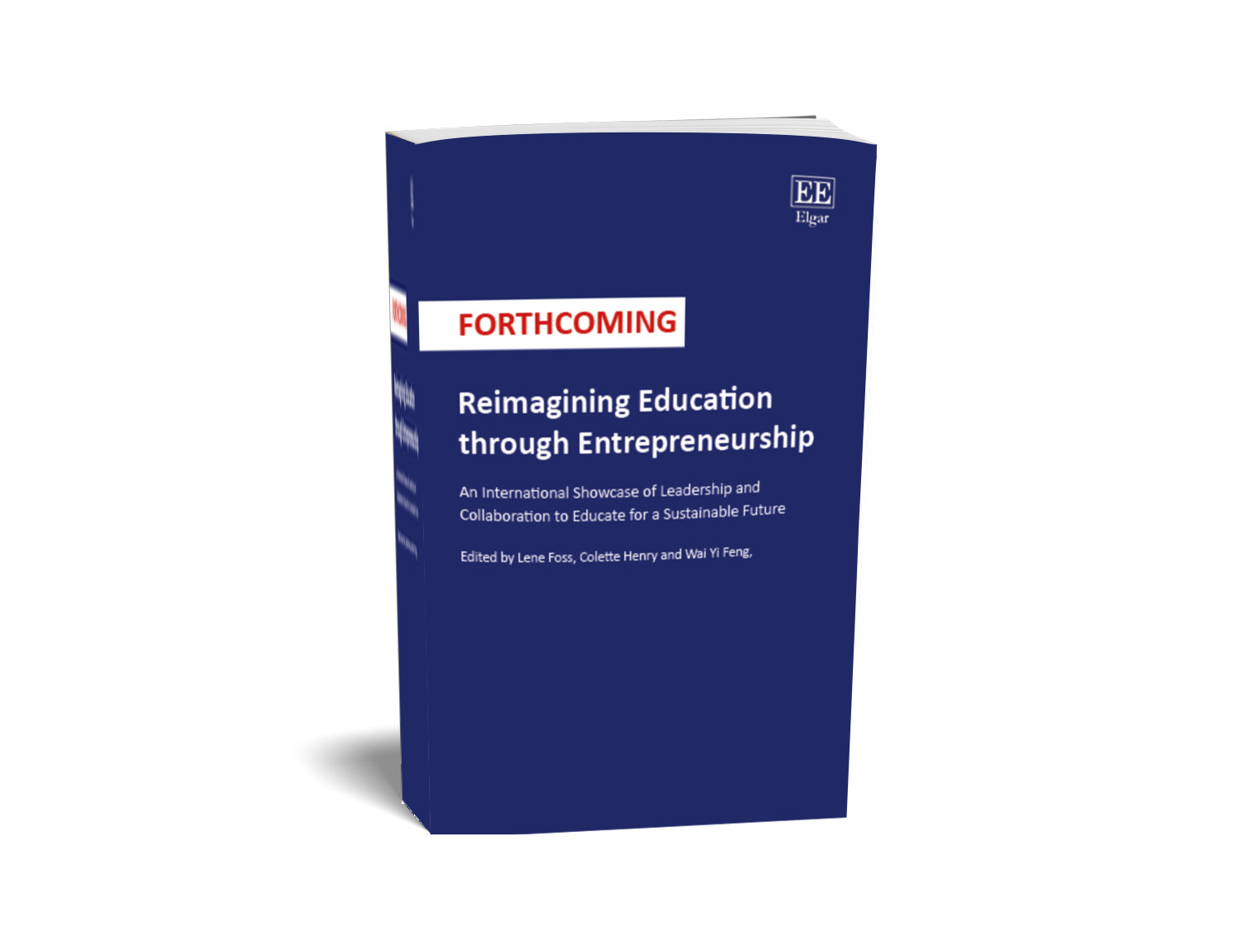CALL FOR CHAPTERS

Reimagining Education through Entrepreneurship: An International Showcase of Leadership and Collaboration to Educate for a Sustainable Future
Edited by: Professor Lene Foss, Professor Colette Henry
& Dr. Wai Yi Feng
Abstracts by 30th September 2023
Submit your abstract to Lene Foss:
lene.foss@ju.se
Quality educational leadership has been shown to be a key factor in academic organizational effectiveness, influencing universities’ entrepreneurial and innovative capability (HEInnovate.eu; Klofsten et al, 2019; Stolze and Sailer, 2021). At the primary and secondary levels, school leadership ranks second behind teaching as a school-related factor affecting student learning (Leithwood et al., 2010). School leaders are under more scrutiny than ever before to make measurable changes in the lives and academic achievement of their students (Hargreaves & Fink, 2006).
Recently, the term “responsible leadership” has become important in education as students face a turbulent world where their live experience is punctuated by social and political unrest, mass movement of displaced people, climate change, financial instability, unemployment, mass layoffs, downsizings, environmental problems, corporate scandals, and unethical conduct in public office (Browne & Foss, 2022). Accordingly, a responsible leader’s core task is to develop relationships with stakeholder groups that “raise one another to higher levels of motivation and commitment for achieving sustainable value creation and social change” (Pless, 2007:438). In the educational context, such stakeholders include parents, communities, businesses, and organizations, and developing strong relationships with such stakeholders often depend upon entrepreneurial thinking and action. While the academic literature covers a range of leadership aspects in different educational environments, little by way of concerted academic attention has been paid to exploring and promoting responsible leadership across the educational spectrum and highlighting the role of entrepreneurship in this process.

This book aims to present an international collection of teaching cases that enhance understanding of educational entrepreneurship and responsible educational leadership. It will help educational leaders to embed entrepreneurial and responsible leadership principles in educational settings. It will also assist those operating within the broader educational ecosystem to reimagine education and educational leadership through entrepreneurship, and in so doing, educate our young people for a sustainable future.
Reflecting our proposed structure for the book, we invite international country-based teaching cases that address on one of the following themes:
- entrepreneurship in educational leadership, organization and management in schools and school systems
- entrepreneurship in the curriculum (and in curriculum development and curriculum enrichment);
- entrepreneurship in collaboration between educational institutions, community, business, and stakeholders
We seek well written and novel teaching cases that demonstrate the different embodiments of entrepreneurship for different phases of education (primary, secondary, and tertiary). We will prioritise those teaching cases that demonstrate how entrepreneurship contributes to educating young people for a sustainable future. Accordingly, we seek cases cut across not just different countries, contexts, and educational levels, but also different academic disciplines, reflecting the spread of both the entrepreneurship and sustainability agendas.
Length
We can accommodate teaching cases of varying lengths. Ideally, cases should be between 3,000 and 5,000 words + a further 1,000 to 2,000 words for teaching notes and references. (The maximum total number of words per case should not exceed 7,000). Teaching notes should adopt the following structure: case synopsis, focus (educational leadership, curriculum, collaboration), target audience (e.g., educational institutional leaders, educators, students), intended learning outcomes, 3 challenging questions for discussion, teaching plan (i.e., how to best use the case, how long it should take to use it), useful supplementary material/references/links.
We see this case book as an international collection of robust teaching cases that will appeal to a wide range of educators across the educational spectrum and across countries. It will be of value to practitioners (i.e., educators in schools, higher education, and other educational institutions), educational managers/leaders, and education policymakers as a source book. The book will also appeal to an academic audience interested in education and entrepreneurship, including instructors and students in teacher education courses, undergraduate and graduate courses in Education, and undergraduate and master’s courses in Business, Entrepreneurship, and International Development. Instructors for professional development and training initiatives for entrepreneurs as well as aspiring entrepreneurs in accelerator programmes and bootcamps with an interest in social enterprise and the charitable sector should also find this book useful.
Important Deadlines
30th September 2023: Deadline for submission of abstracts (500 words summarizing the case chapter and its relevance to the topic of entrepreneurship and education for a sustainable future).
31st October 2023: Editors’ decision on abstracts sent to authors.
28th February 2024: Deadline for submission of chapters (full cases with teaching notes).
31st May 2024: Review feedback sent to authors.
30th August 2024: Deadline for submission of revised chapters.
January-March 2025: Final revisions, editing of cases and submission of manuscript.
Late 2025: Expected publication of book.

